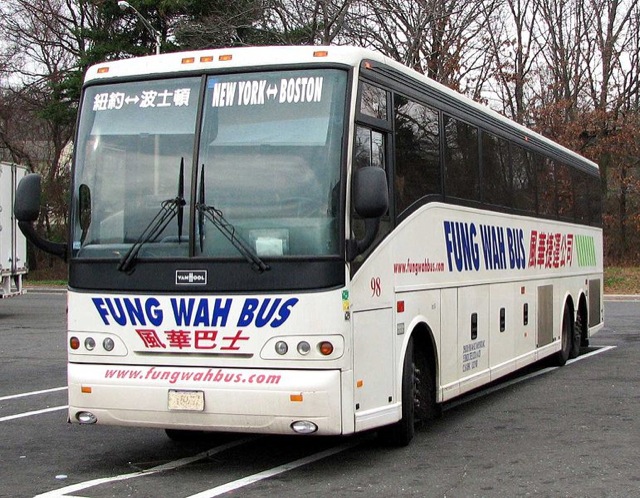A year ago, the U.S. Department of Transportation dramatically shut down more than two dozen “Chinatown” bus companies for safety violations. At the time, the Antiplanner expressed skepticism, saying that if the same criteria were applied to transit agencies such as Washington Metro or Boston’s MBTA, they would be shut down too. But the DOT said it relied on a National Transportation Safety Board (NTSB) study that found that “curbside” buses were seven times more dangerous than conventional intercity buses.

Fung Wah, the original Chinatown bus company, was not one of the ones shut down in last year’s federal raids. Wikipedia photo by Toytoy.
Now, some people are challenging this study, saying that its methods were so faulty it may as well have been completely fabricated. The NTSB has a reputation for sound quantitative analysis, but this study was first questioned by Aaron Brown, a Wall Street financial analyst, who accused the NTSB of “statistical malpractice” for improperly manipulating data and refusing to release its raw data. Based on what data were available, Brown estimated that curbside buses were actually safer than conventional ones.







